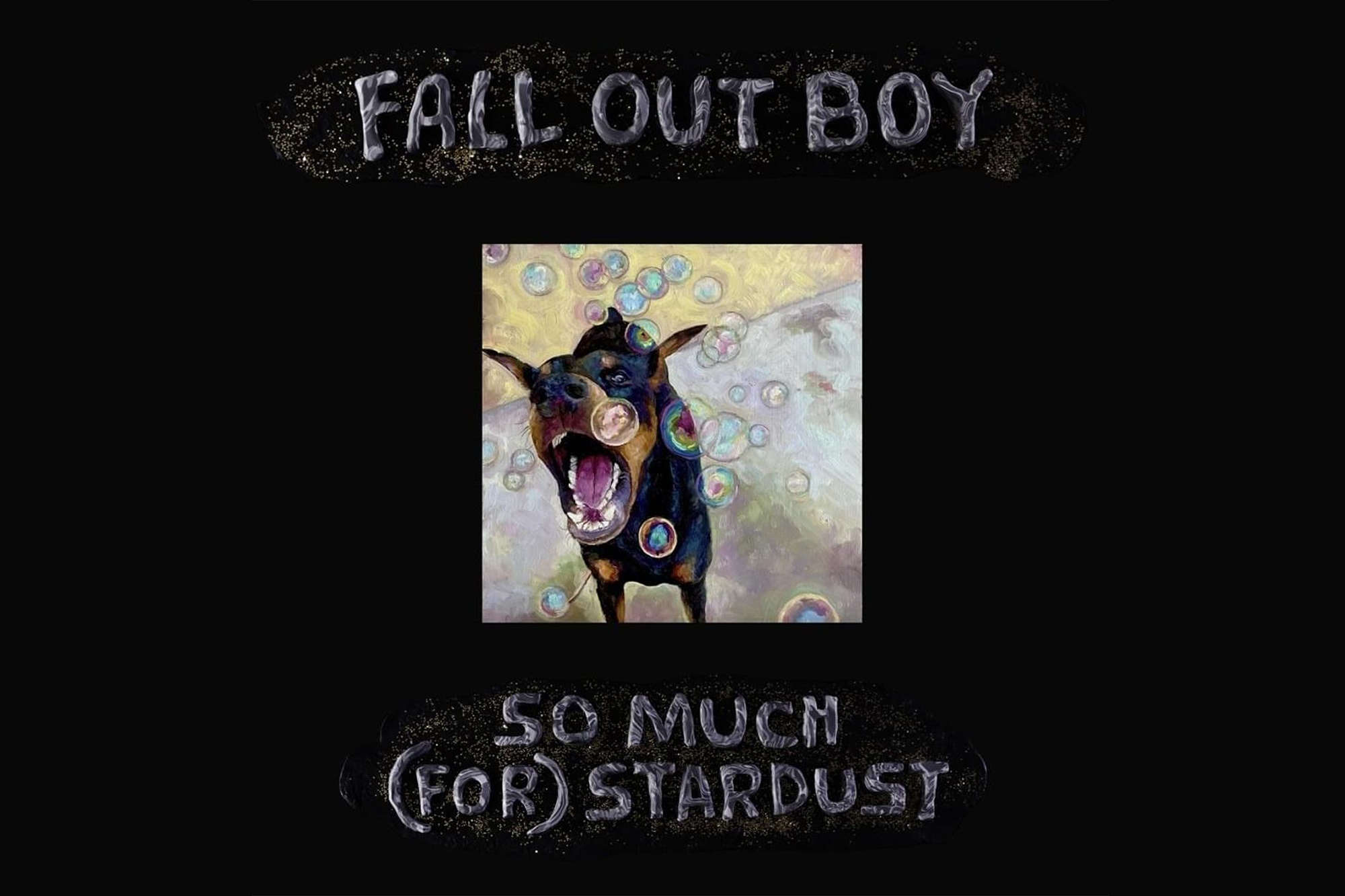Emo nostalgia is in, and Fall Out Boy knew it was the right time to deliver it, going back to its roots for its newest release.
The band’s eighth album and first record in five years, So Much (for) Stardust, was released on Friday and garnered much attention for sticking to the emo sound fans know and love.
The album starts strong with “Love From The Other Side,” the band’s first single released in anticipation of the album that marked a return to their classic voice. The song slowly melts into this from a dramatic orchestration, working to gracefully bring audiences into the album. I especially loved the bounce in the pre-chorus, which had a jazzy feel.
The group’s past records swung farther away from its usual sound and had a more pop sheen to them. Fall Out Boy’s last album released in 2018, Mania, strayed a little too far from the music that fans grew older listening to. Bassist and lead singer Pete Wentz as well as guitarist Patrick Stump told Variety the band was trying to survive in a music landscape not typically friendly to bands.
[Saxophonist Walter Smith III showcases new album at the Clarice]
“It really wasn’t so much conscious of rock or any style or stylistic choice. To me, I felt like I had gone down this road of experimenting with technology and that was really fun and fulfilling. But we did that for three records and really culminated with Mania,” Stump said.
The album also incorporates references to movies and quotes from them. “The Pink Seashell” featured a backtrack under a spoken monologue by actor Ethan Hawke from the 1994 movie Reality Bites, where Hawke’s character Troy Dyer recalls when his father gave him an empty pink seashell and told him the answers were within it.
Later in the album is another spoken word piece, this one from Wentz. “Baby Annihilation” adds more storytelling to the album and is reminiscent of the band’s earlier records.
As with many albums written and released recently, Fall Out Boy took the shared experiences of the COVID-19 pandemic and snuck in a couple of lyrics — and even a whole song — referencing the infamous year of 2020. In “What a Time To Be Alive,” Stump sings, “Sometimes, you wonder if we’re ever looking back / At a picture of 2019 / And saying, ‘That’s the way, the world, it used to be / Before our dreams started bursting at the seams.’”
[Review: Miley Cyrus outdoes herself once again with ‘Endless Summer Vacation’]
The lyrics of this song poke at the idea of post-pandemic life and reminded me of how many artists take a moment in live concerts to thank the audience for sticking around through the pandemic when live performances stopped and express gratitude for a return to performing live.
The album ends with the title track, a risky move that held strong for the album’s theme. When an album chooses to end with a title track, I expect it to encompass the themes of the album, act as a point of realization or be altogether standout because the artist made us wait until the end to hear it.
Fall Out Boy succeeds in taking the audience full circle with “So Much (for) Stardust,” bringing back orchestration also featured on the album’s first track and also repeats lyrics from it, encapsulating the album beautifully: “In another life, you were my babe / In another life, you were the sunshine of my lifetime / What would you trade the pain for? I’m not sure.”



